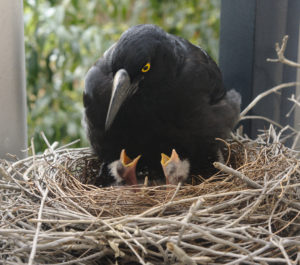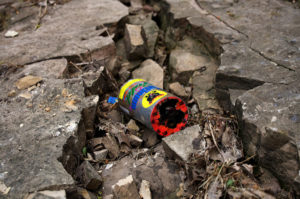Our organization, Beauty Without Cruelty, has been actively campaigning for a ban on fireworks here in Cape Town, South Africa, for over 11 years. We have always highlighted the fact that whether one’s dog has a fear of fireworks should not be the only concern, but also the elderly, those with Post-Traumatic Stress Disorder (PTSD), wildlife, stray and homeless animals, and all those who would be negatively affected. We have written letters, demonstrated, and educated on this issue. We handed 10,000 hand-written signatures to the mayor of Cape Town in 2009 and sadly, still nothing has changed.
The city maintains that only national legislation will lead to a resolution. As part of a coalition of organisations, we have recently proposed a motion in parliament, which was rejected this time around on the grounds of religious freedom. It will be proposed again next year, with adjustments to take this element of the fireworks issue into account. Hindu representatives, who are the main group in South Africa that uses fireworks as part of religious activities, are equally against the use of percussive fireworks. With this general agreement, why not submit the adjusted proposal sooner, you ask? Bureaucracy, in a nutshell.

People setting off their own fireworks in Cape Town, South Africa. Along with other issues, allowing individuals to set off their own fireworks creates the potential for various types of harmful negligence and injury. Image credit Wesley Nitsckie, CC BY-SA 3.0.
We, a great many organisations and members of civil society representing many thousands, have respectfully requested that the city of Cape Town immediately within its jurisdiction, prohibit the production, sale, purchase and use of fireworks, with immediate effect. Our rationale is clear, and includes the proven detrimental impact that fireworks have on animals and the environment, the fact that fireworks are arguably in conflict with the provisions of certain other legislation, the demands of public opinion, the proven detrimental impact fireworks have on human health, and various other reasons.

Fireworks can frighten birds into fleeing their nests, potentially abandoning their young, such as these highly vulnerable Currawong chicks. Image credit interestedbystandr, CC BY-SA 3.0.
As fireworks season is in our spring and summer, nesting birds can be frightened to death or so disoriented when they fly off as to not be able to find their nests and nestlings. Other wildlife suffers too from shock and fright and can endure injuries and death in their panic to escape. They also ingest fireworks litter, which poisons them or causes intestinal blockage. Sound travels far at night, and fireworks discharged in one area can cause problems kilometers away, directly in conflict with animal protection laws and existing fireworks laws as they pertain to animals.
In South Africa, our constitution guarantees every person the right to an environment that is not harmful to their health or well-being, and to have the environment protected for the benefit of present and future generations through reasonable legislative and other measures that prevent pollution and ecological degradation. Fireworks are most certainly not environmentally responsible, as each step in the life cycle of a firework causes various forms of pollution. This is true from manufacturing (including mining for raw materials) to transport; air, noise, land and water pollution resulting from discharges; as well as the consequent litter. The pollution and poisons in fireworks can be swept downwind, causing further problems in other areas. They also create trash, as the parties responsible usually do not clean up the remains. We are of the view that anyone who considers themselves even slightly environmentally conscious cannot accept the use of fireworks.

This litter was left after fireworks were discharged, which is often the case. On top of the normal issues with litter, fireworks litter also contains harmful toxins, which can harm wildlife. Image credit Andrew Iverson, CC BY-SA 3.0.
Studies emphasize the high incidence of fireworks-related injuries during holiday and religious periods, which are of global concern. There are also high numbers of injuries suffered by children as a result of fireworks, including due to child labor in their production. These child workers are not usually long-lived because of the toxins involved, many of which are carcinogenic and endocrine-disrupting chemicals.
In addition to the many reasons aforementioned: individuals can and do behave irresponsibly and without consideration in their use of fireworks, and sometimes with malice, often days before and after an event; both the legal and illegal use of fireworks overburdens animal shelters and hospitals dealing with their effects; and they damage personal and public property–in some cases, catastrophically. We also point out that trying to enforce the current regulations regarding fireworks puts additional pressure on the South African Police Services, who are already overburdened and under-resourced.
There is nothing of benefit to be found in fireworks, except the brief entertainment factor, which can easily be found in other manners, including spectacular light and laser shows.
Featured image: A fireworks display. Image credit Nacho Rascón, CC BY-SA 3.0.





